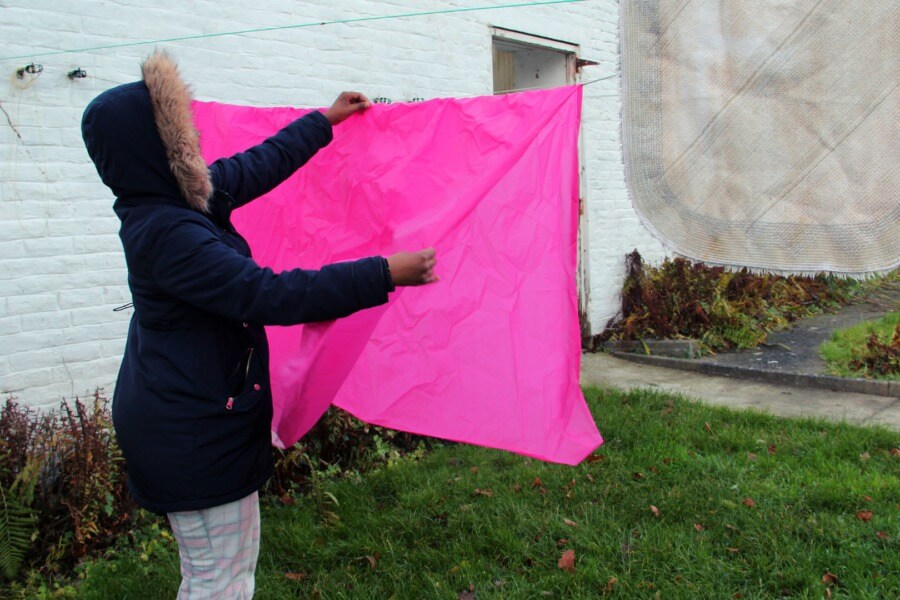
Valentine’s story
Since July 2018, Valentine[1], and her three children have lived in a studio at Logis de Louvranges, a shelter for vulnerable women with or without…
Read moreCaritas International by region
Caritas International in Belgium
Asylum & Migration Asylum-seekers Single asylum seekers and families Syria
“Damascus?” Forget Damascus!” exclaimed Tariq, a tour guide for twenty years in his hometown. In his mind, the Syrian capital no longer exists: “my house has been destroyed, as well as my cars, there is nothing left of the neighborhood where we lived.” Three years ago, the war in Syria forced them to flee to Jordan. There, Tariq worked for six months in a travel agency. The situation soon became more complicated: with jobs increasingly reserved for Jordanians, Tariq had to obtain special permits in order to work, for example, Tariq’s employer had to pay the equivalent of 1000 € to obtain such a work permit. Tariq’s brother and family had already fled and settled in Germany. He hesitated for a long time, and then decided to make another journey, this time, heading for Germany.
“The journey of death, as it is called between us. We have escaped death three times,” he says incredulously. The journey lasted two weeks: on foot, by boat, by bus, by train. “Some have even borrowed bicycles. The trip cost him 2000 € while his wife and daughter stayed in Jordan.
After passing through the Balkans, Hungary and Austria, Tariq finally reached Germany – his final destination, at least, that’s what he thought. “We were well received in Germany. The food was good, and we had a roof over our heads, but it was announced that there would be several months of waiting before obtaining refugee status, the main source of concern for Tariq, who hoped to be quickly join his wife and daughter. Thus his plans were turned upside down!
A providential alternative is posed however: “a man posing as an emissary of the Belgian government came to meet us at the camp. He wanted to know if we were interested in continuing our journey to Belgium, where our procedure should not exceed a few days. The man left a phone number, a business card, and said that Tariq must make a decision quickly. The invitation tries the father of a family, especially as he has never considered Belgium. The prospect of finding his family quickly compels him, he hesitates “Go to Belgium? Leaving Germany? “, finally convinced by a friend who is a lawyer, and in turn, he persuades his brother-in-law and four of his cousins to leave Germany.
“A few days later we boarded a bus. After 7 hours of traveling, we were in front of the Office des Etrangers in Brussels where we were brought in through a side door.” The paperwork, the interviews, the medical check-up and the recording, all took place very fast, with little to no time to understand what is happening to them. Yet the doubt of having made the right choice remains: “that same evening, we took the bus!” In a file Tariq finds a document and a note written by hand: “date of interview: to be determined.”
The man rubs his knees, which have been aching for a few days: “it was a long, long journey and now we are here.” Here, it is the concrete terrace of a caravan in a campsite in Liège region. Fedasil has found camp managers ready to extend the period to accommodate asylum seekers awaiting refugee status. “Since we have been here, we have had no news from Brussels. It is not easy. Until recently, I was hoping to see my family again. I start to wonder and ask myself if I made the right decision. How do you explain the situation to my cousins? Sufjan comes to sit at the table, handing out plastic glasses and pouring juice. “I took them with me, so far, in Belgium, I feel responsible for them, and the wait is so long.” Amin, his brother-in-law joins the conversation. The man holds out his phone with a smile. On the screen, there are two little girls asleep against each other. “In Kartoum,” he said. Indeed, during the war, Amin also wanted to shelter his family and fled to the Sudanese capital. He has not seen her for several months. Sufjan does the same and shows his two boys: “these are my sons, they are still in Damascus.” Amman, Kartoum, exchange photos amongst themselves of Damascus and Liège.
The men around the table are likely to be admitted as refugees. But as long as nothing is written in black and white, the days and nights at the campsite seem endless. The prevailing uncertainty and rising boredom begin to gnaw at them.
“There were many of us on the bus that brought us here. We quickly felt as a family here, among refugees,” Tariq tells of the story of his days. Thanks to his good knowledge of the English language that he learned during his many years as a tour guide, he became the official translator of the campsite and could therefore help link asylum seekers to Caritas colleagues. The need for Tariq as a translator is enormous: he is present to explain practical medical and legal issues and give advice.
Today, 285 people are welcomed at the campsite. The weather is dry but the nights get cold. Tariq is anxious to leave, but wants, above all, to have the security of quickly finding his family. “I heard that Antwerp was a pleasant town? Could I be helpful there?”